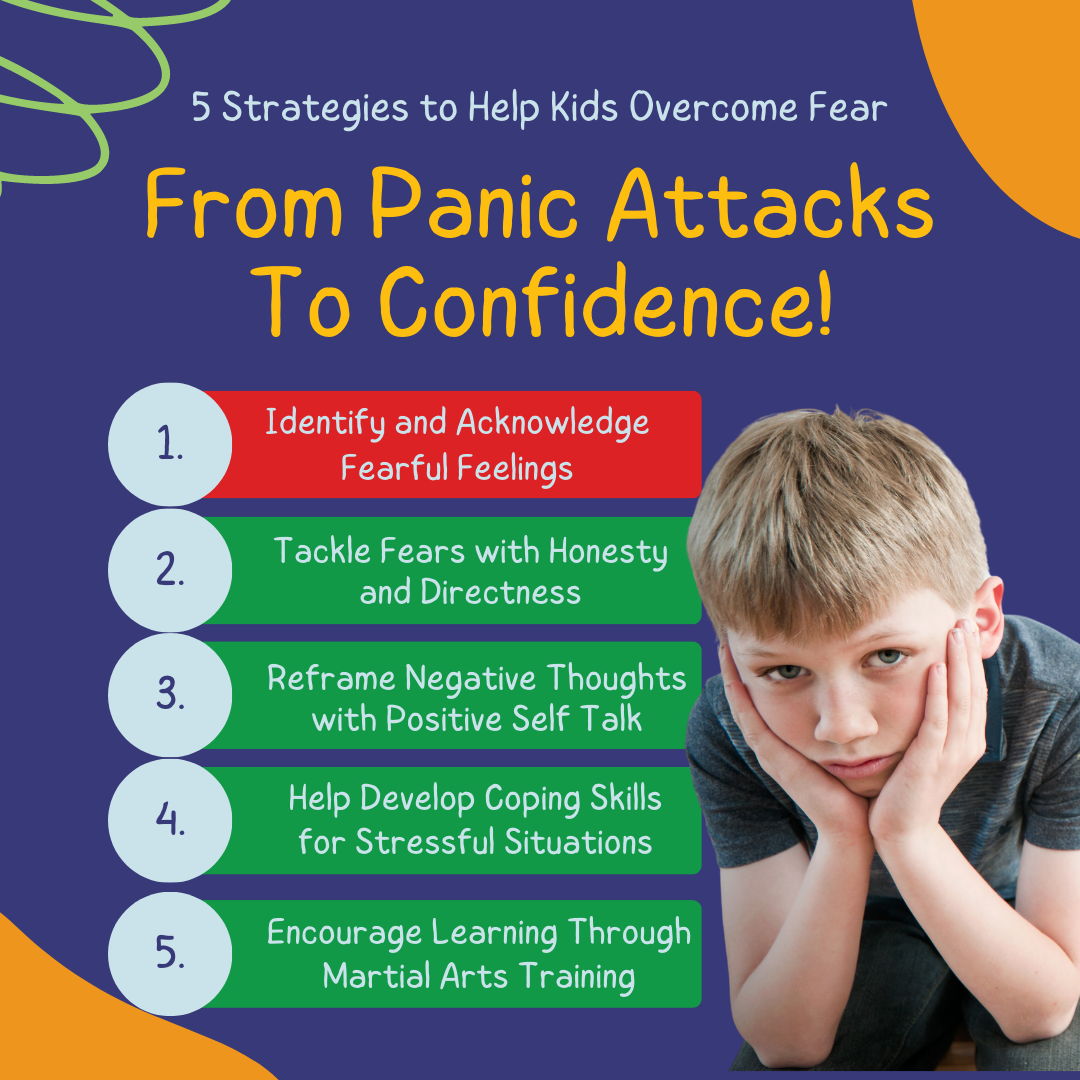
5 Strategies to Help Kids Overcome Fear
Children are often faced with a variety of fears, ranging from more common ones, such as fear of the dark, to more complex ones, such as fear of separation or divorce. Common fears also include fear of burglary, war, death, and supernatural entities like ghosts or monsters. Additionally, some children may be afraid that they will be left behind if there is a new baby brother or sister in the family. Although it is normal for children to experience fear at times, if they feel scared or their fears prevent them from having fun and participating in activities, parents and caregivers should take steps to help them cope with their emotions.
Fear can manifest in many different forms, including panic attacks, which are characterized by physical symptoms such as shaking, sweating, shortness of breath, heart palpitations, chest pain, and a feeling of impending doom. Other issues caused by fear include avoidance behavior and emotional numbing, where a person may avoid situations that make them feel afraid or try to numb themselves from fear. In extreme cases, some children may experience post-traumatic stress disorder (PTSD) due to experiencing repeated traumas or an extended duration of fear.
Helping children overcome fear begins with understanding the root cause and addressing it. Reassuring a child that they are safe and providing emotional support can also help them feel more secure and reduce their fear. Additionally, distraction techniques such as deep breathing, visualization, or playing games can effectively manage fear in the moment. Teaching children strategies to combat fear, such as positive self-talk, problem-solving skills, and relaxation exercises, can also be helpful. Finally, speaking with a doctor or mental health professional may help if the fear persists despite intervention from parents or caregivers.
Identify and Acknowledge Fearful Feelings
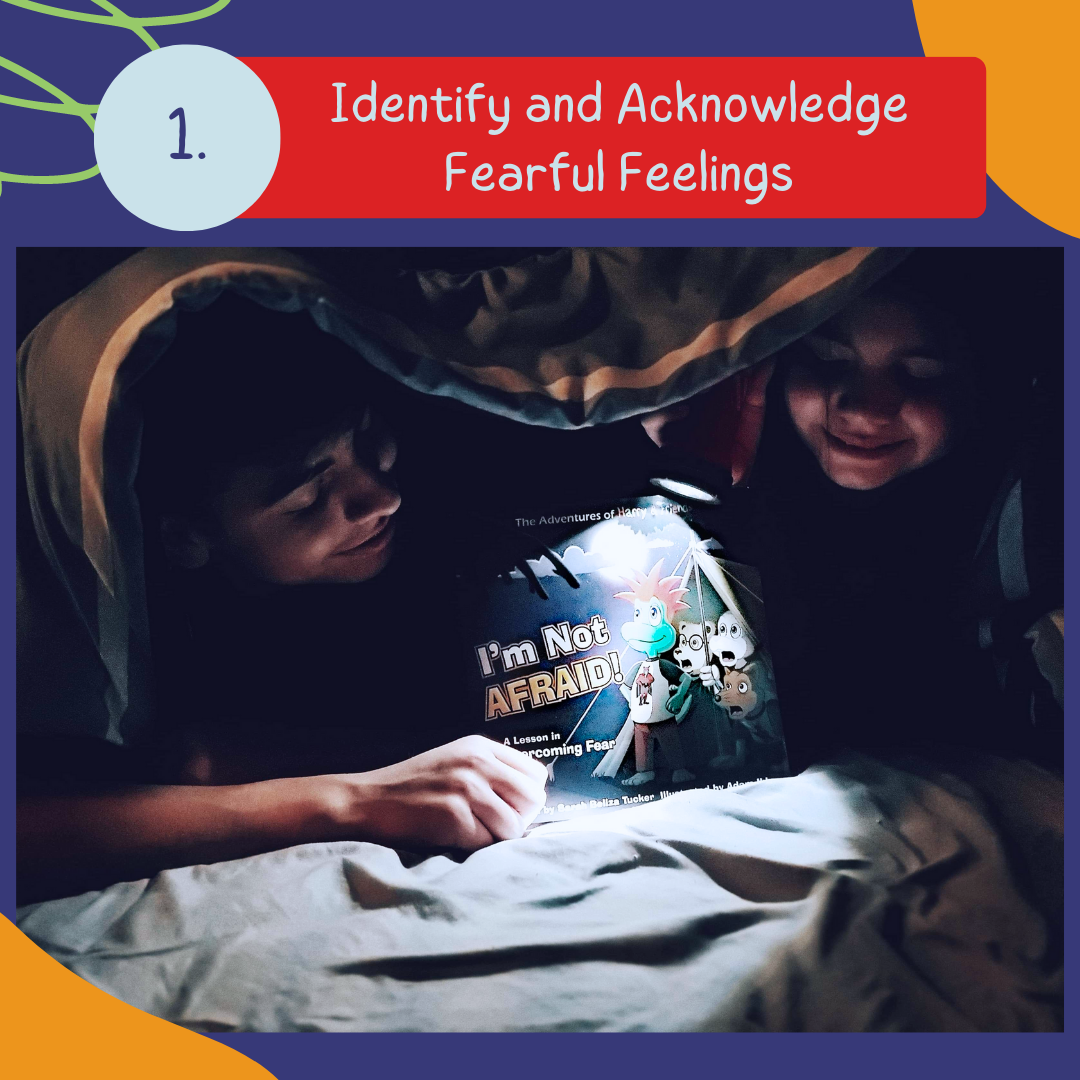
Children of all ages experience fear, and they need to understand and acknowledge their fears to better cope with them. This can be difficult, especially for younger children still developing the skills necessary to cope with their emotions. For this reason, parents and caregivers must take steps to help children identify and acknowledge fearful feelings. Creating a safe space where kids can express their worries without judgment or criticism is key. Additionally, parents can suggest activities like storytelling, drawing, or writing as ways to help children open up about their feelings. Such activities can allow kids to express themselves in a safe environment while also helping them build the tools they need to cope with their fears.
Tackle Fears with Honesty and Directness
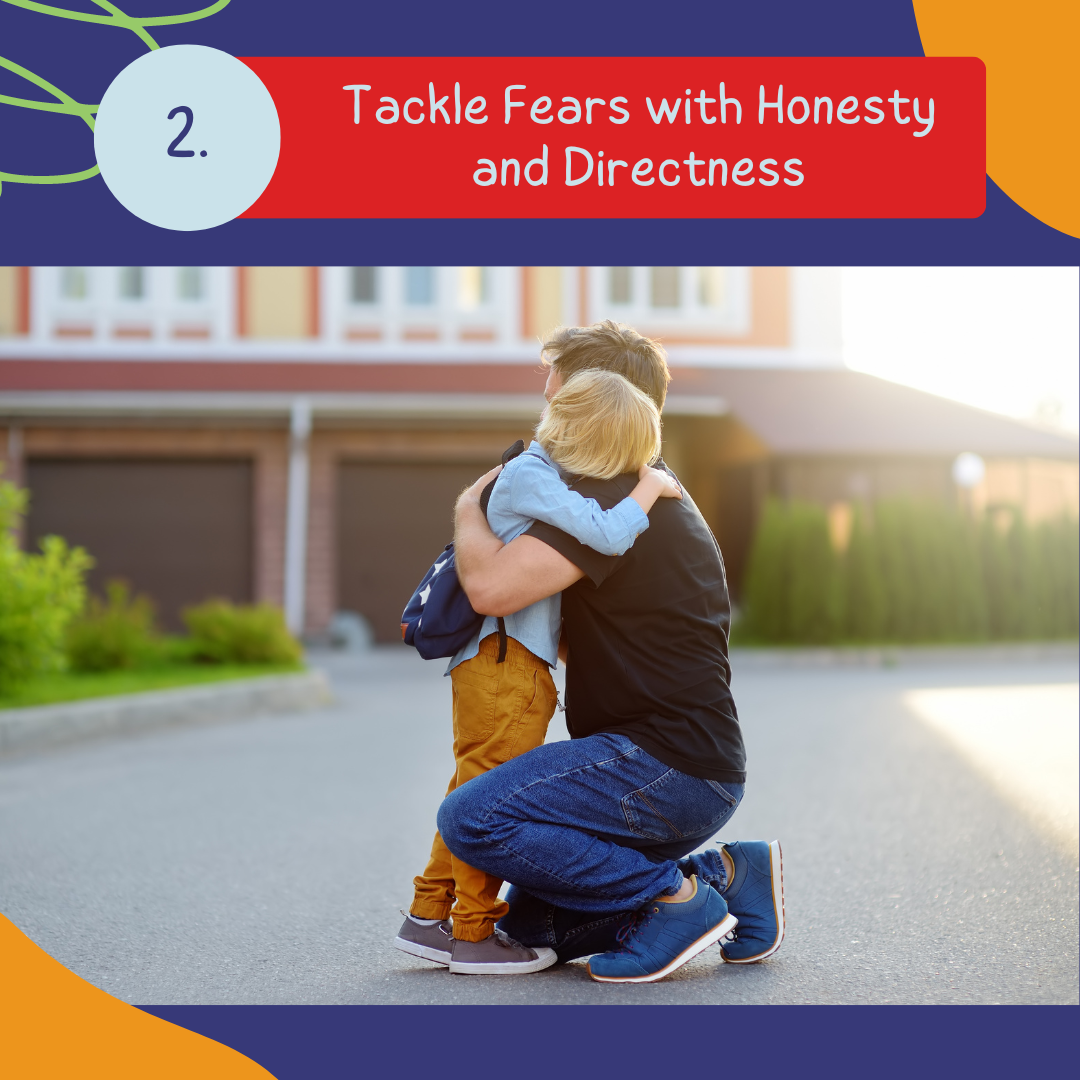
Facing fears can be difficult for everyone, especially for children. Parents and caregivers need to tackle these fears with honesty and directness to help children cope with them more effectively. Talking openly about a child’s fear in a non-judgmental and comforting environment can help reduce the fear as it allows the child to understand better and process the emotion. Additionally, parents should offer advice on addressing the fear head-on; this could involve helping the child find ways to combat their fear or teaching them coping techniques such as deep breathing or positive self-talk. Consistency is also key when tackling fears —parents should be patient and provide ongoing support to be there when their children need them most.
Reframe Negative Thoughts with Positive Self Talk
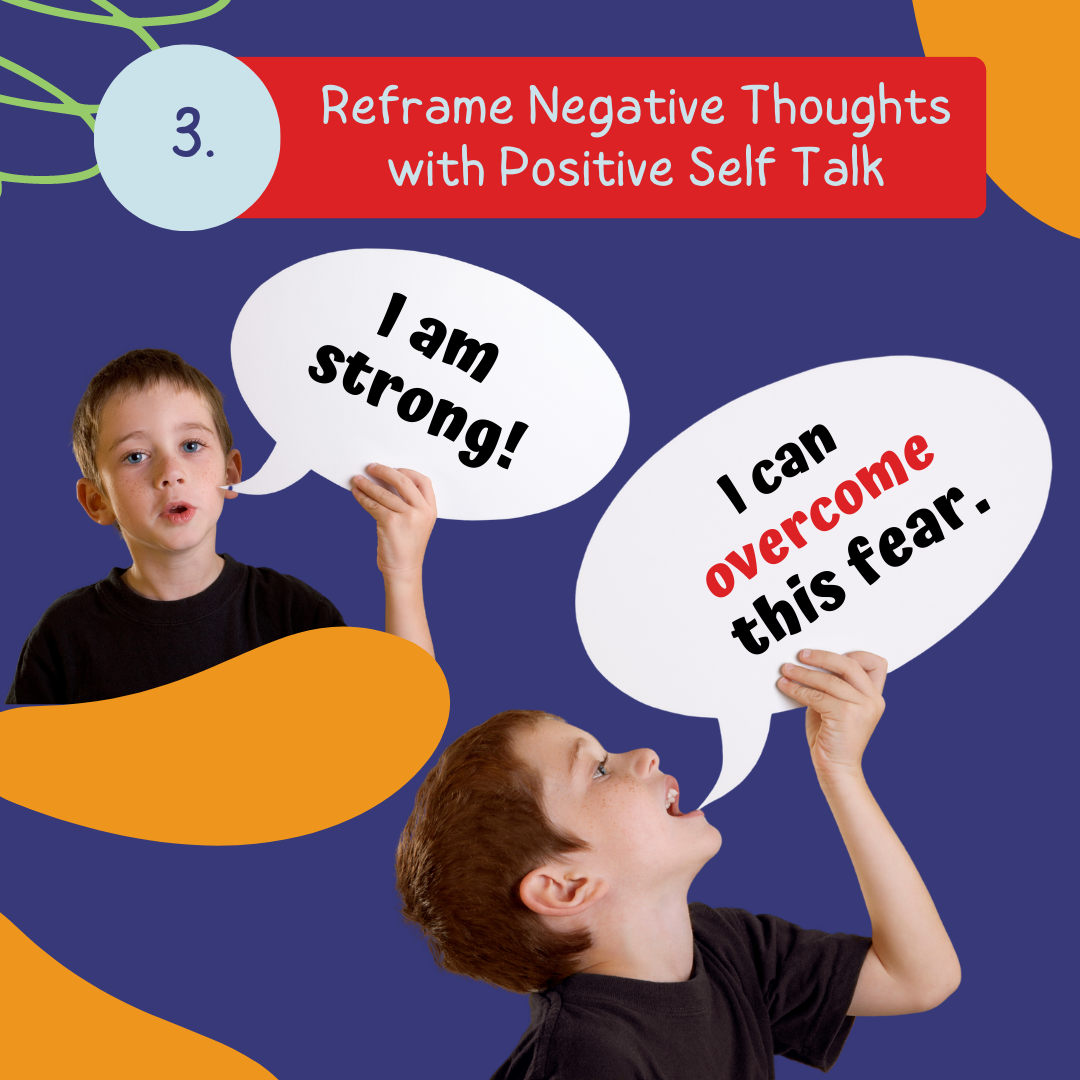
Reframing negative thoughts with positive self-talk can be an effective tool to help reduce the intensity of fearful feelings. Cognitive Behavioral Therapy (CBT) is a popular technique that helps individuals develop more positive coping strategies and identify triggers that lead to negative thoughts and behaviors. Parents can encourage their children to use techniques like journaling and positive self-talk during fear or stress. This could involve teaching them phrases such as “I am strong,” “This feeling will pass,” or “I can overcome this fear.” By recognizing negative thought patterns, children can create more productive inner dialogue that promotes resilience and positivity. This can, in turn, help reduce the severity of their fears, allowing them to manage their emotions better.
Help Develop Coping Skills for Stressful Situations
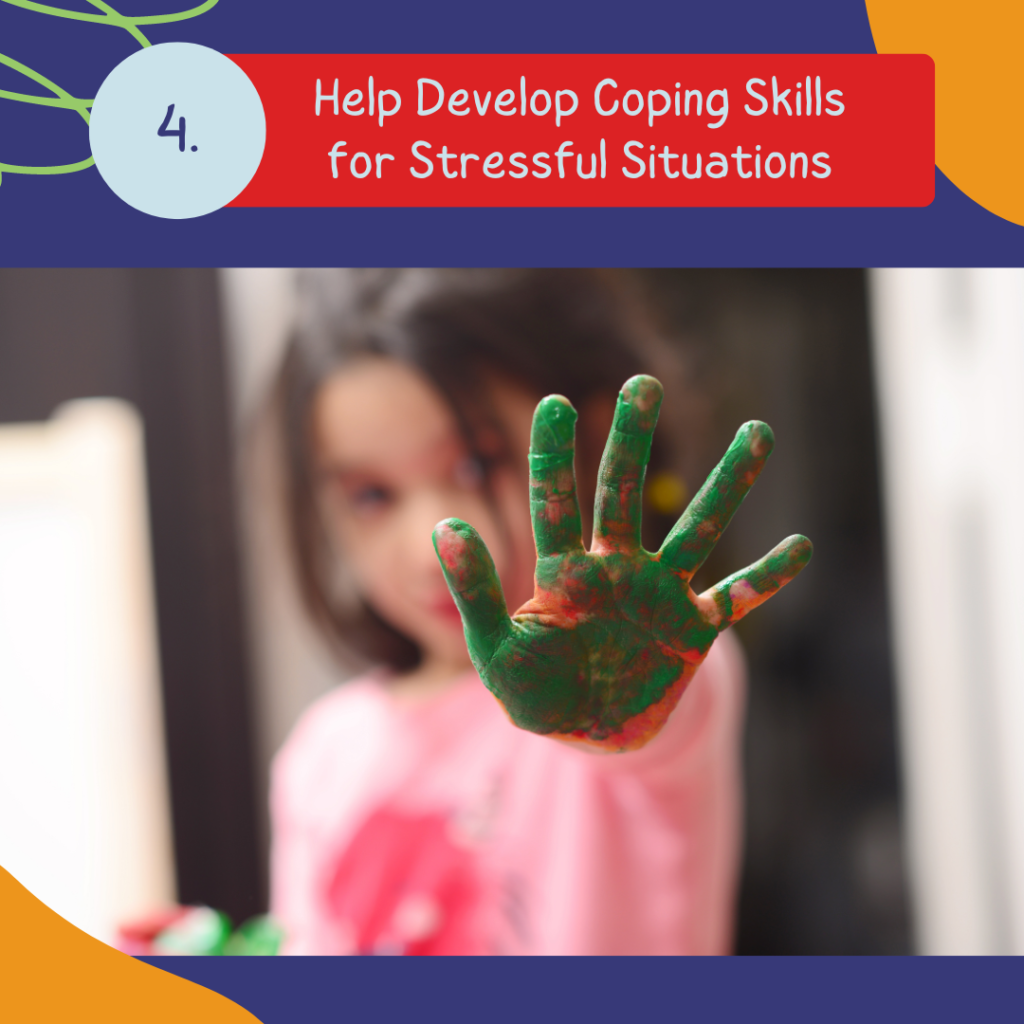
Learning to cope effectively with stress can be a challenging process for kids, especially during difficult scenarios. Parents and caregivers can help their children develop these essential skills by introducing coping strategies such as deep breathing, mindfulness, or writing down thoughts in a journal. It is also important to model effective coping skills at home — parents can demonstrate how to express emotions through art or talk through problems together. This provides children with the support and examples they need to manage their emotions during stressful situations better. Additionally, parents need to be patient and understanding when teaching these skills, as it may take some time before children feel fully comfortable using them.
Encourage Learning Through Martial Arts Training

Stories from families who have benefited from martial arts lessons illustrate its potential impact on children’s lives. Parents have seen remarkable results in their child’s attitude and behavior since enrolling in martial arts classes — including improved focus and concentration and increased respect for authority figures. Through this intense yet rewarding learning experience, kids can become more confident in both physical activities and professional scenarios.
Martial arts training can be an excellent way for kids to develop physical discipline, coordination, and self-confidence. Not only does martial arts help children overcome fear and self-doubt through physical activity, it also provides an outlet for creative expression and personal growth. By encouraging children to push themselves beyond their expectations and boundaries, they can better understand the importance of hard work, dedication, and persistence.
Books and Activities
For parents hoping to help their children learn how to deal with fear and self-doubt, there are some books and activities that can be beneficial. Children’s books with stories about characters facing similar fears can help kids articulate their emotions and understand them better. Games such as role-play, puzzle-solving, or drawing can also offer an opportunity for creative expression and distraction from anxious thoughts. Additionally, online courses or apps designed specifically for children can help reinforce positive messages and provide helpful tools like deep breathing exercises. With the support of these resources combined with understanding and unconditional love from parents, children can gradually gain confidence in facing fear and developing better-coping strategies. Below is a list of books we think you and your children will enjoy.
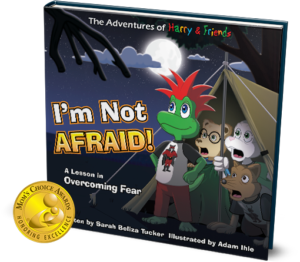
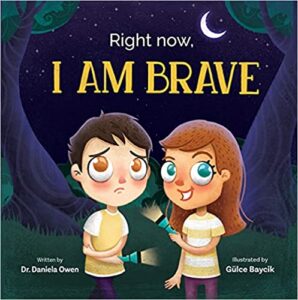

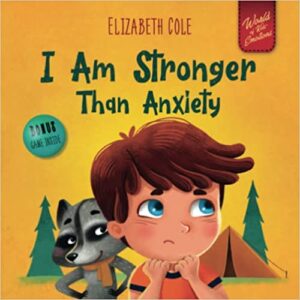


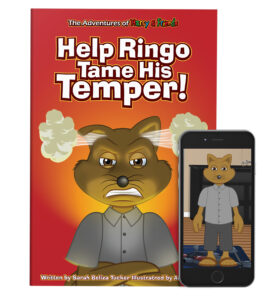
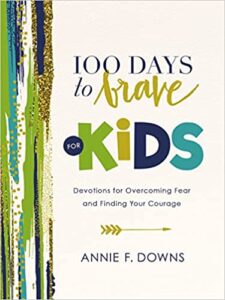
Conclusion –
This article has highlighted the importance of supportive adults when helping children learn to overcome fear and self-doubt. It suggests a variety of strategies, such as identifying and acknowledging fearful feelings, tackling fears with honesty and directness, reframing negative thoughts with positive self-talk, and teaching children coping techniques like deep breathing and problem-solving skills. Additionally, creating a safe space where kids can express their worries without judgment or criticism is key. By encouraging open dialogue and unconditional love at home, parents can help guide their children toward self-acceptance and improved mental health.